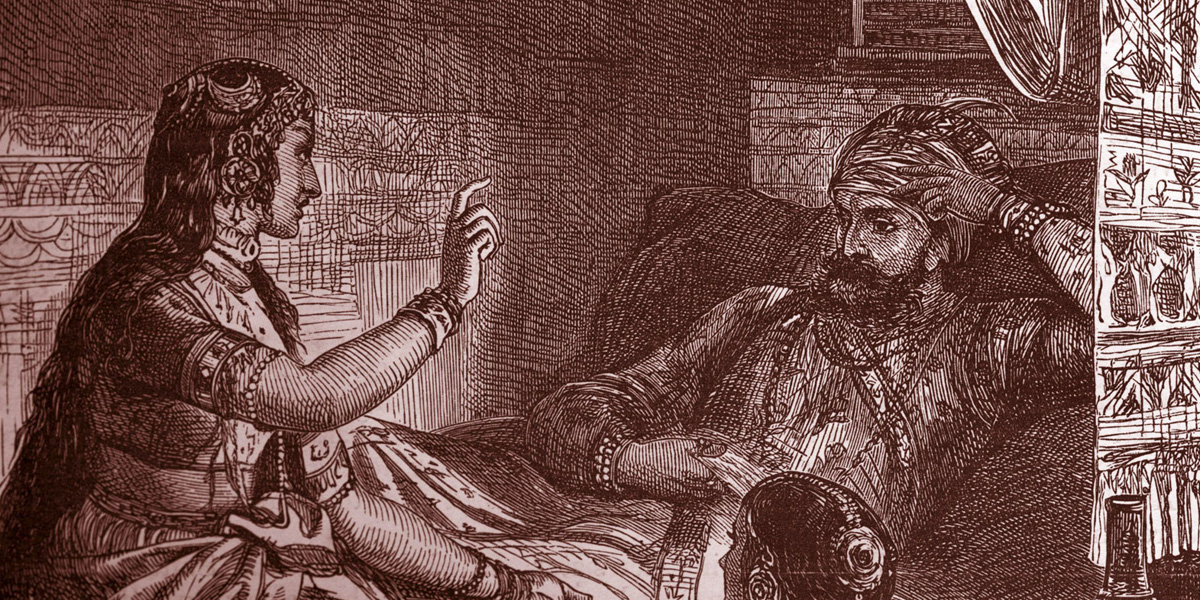Jorge Luis Borges once wrote a story called ‘A Survey of the Works of Herbert Quain.’ When originally published it was assumed to be a work of non-fiction, but was later discovered to be a product of his imagination. In the story, Borges imagined Quain as the creator of myriad literary works, built from the same set of modular chapters. The order in which the blocks of text were placed created different stories in different genres: romance, mystery, or adventure.
As we conclude the Arabian Nights, it’s clear that this collection operates in a similar manner. Over the days and weeks we have encountered the same tropes, plugged together in hundreds of different ways, to create sagas, comedies and tragedies. The final trio of stories were built entirely of blocks we have encountered before: radiant young men on a quest, Bedouin bandits, feminine trickery, conspicuous spending, perfidious brothers, snake-jinn… and giant metal rings in the ground.
In the brief, preposterous epilogue, the king discovers that he has fathered three children with Shahrazad, and he lifts the clear and present threat to her life. But one wonders whether that’s end of her storytelling: At no point in the finale does our meta narrator tell us that Shahrazad stops talking. And I find myself doubting that Shahrazad would break her streak by taking a night off. Would Shahriyar consent to the end of the routine he has found so entertaining? I doubt that too — because there are still new ways to remix the tropes, new tales still to be told.
Continue reading “The End of the Story?”







